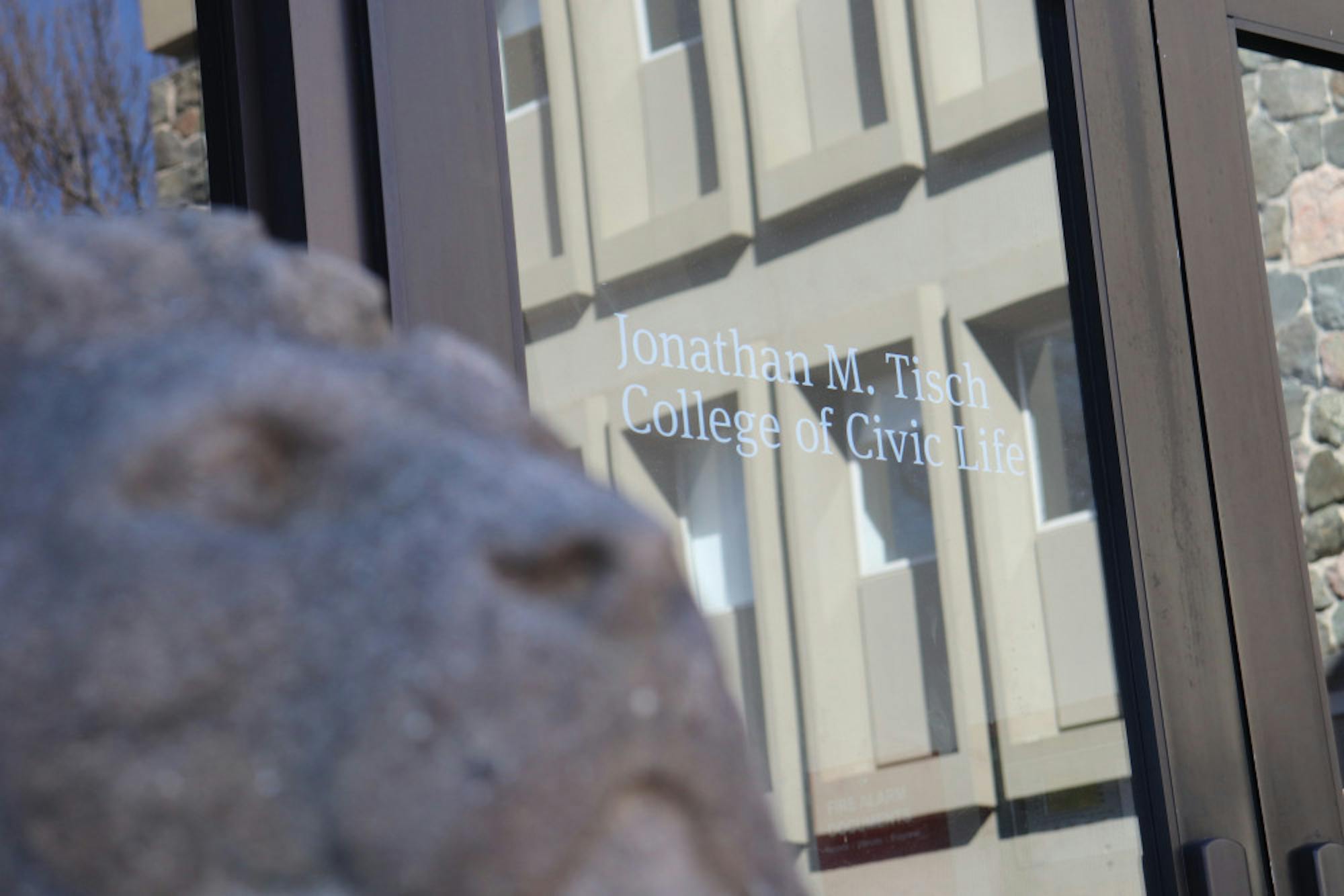Before joining together to teach a course in the Jonathan M. Tisch College of Civic Life for the spring 2021 semester, longtime friends Jesse Mermell and Dave Cavell (LA'06) were competitors in Massachusetts’ 4th Congressional District Democratic primary. Their course, "Talking Points, Tweets, and TikTok: Modern Political Communications and Message Development," reflects their experiences on the virtual campaign trail.
Much like the rest of the country, Mermell and Cavell were caught completely off guard by the chaos-precipitating midsection of March 2020. As COVID-19 projections became increasingly troubling and case numbers climbed, the two hurriedly prepared for total lockdown by canceling social engagements and resigning themselves to prolonged housebound isolation. They regarded the future with unease.
It didn’t help that, for both of them, there was still an election to win. As political candidates, they saw the restrictions borne of the pandemic as significant setbacks to daily operations. Their contest, Massachusetts’ 4th Congressional District Democratic primary, was crowded and competitive; social isolation was an added difficulty to the already formidable challenges involved in running their intense campaigns, they said.
Even so, Mermell and Cavell knew that COVID-19 would inevitably bring the very issues that had initially motivated their candidacies to the forefront. Amid copious uncertainty, one thing seemed clear to them: The repercussions of a long-lasting pandemic would exacerbate the wide variety of struggles faced by the working families whom they had hoped to advocate for in Washington. For Mermell and Cavell, there was no time for doubt –– the only option was to adapt and press onward.
“For us, it was very much building the plane as we flew it,” Mermell said.
She and her team had coincidentally planned to celebrate the opening of their new campaign office in the second weekend of March. According to Mermell, the event was to be headlined by congresswoman and supporter Ayanna Pressley. She hoped it would set the tone for an energized (and non-socially distanced) six months of teamwork.
Mermell discovered shortly before the event that it would not go on as planned. Approximately 48 hours prior to the date, Mermell quickly changed her plans.
“It just became clear that that wouldn’t be safe, and so on a dime, we … canceled it and turned it into a virtual event,” Mermell said.
The substitute event, what Mermell called a maskless “MTV Cribs style” walking tour of the new headquarters followed by an interview with the congresswoman, still makes her cringe, she said.
“We didn't understand masking and social distancing yet, so there’s literally footage of the congresswoman standing right next to me,” Mermell said.
While considerably safer than the prior iteration of the event would have been, her makeshift planning demonstrates the growing pains of adjusting to virtual campaigning. Cavell also reflected on the rapid changes brought about by the pandemic.
"It’s fascinating to go back … In late February, we had what turned out to be the only in-person debate of the entire campaign,” Cavell said. “This is, what, two, three weeks before the entire world changed, and not a single question was asked about coronavirus."
Virtual outreach was not unfamiliar territory for Cavell, whose prior experience as deputy director of new media for the Office of former Massachusetts Gov. Deval Patrick provided some guidance.
“It was my job to launch the first YouTube channel and Twitter account for the governor of Massachusetts,” Cavell said. “We had to think through all the issues, like, okay, what should we call the account: If we call it ‘@GovernorPatrick’ then that account leaves with him, so we decided to make it ‘@MassGovernor.’”
With the basics of online communication out of the way, Cavell contemplated the more subtle points of political messaging in a crisis. He considered deleting a humorous, pre-shutdown TikTok video that depicted him washing his hands to a Lizzo song, but was advised to keep it up.
“We were talking to public health people who were like, ‘Look, any way that you get in front of people and show them that it’s important to wash your hands right now is worth it,’” Cavell said.
Lizzo-soundtracked TikToks aside, both candidates initially decided to pursue a more serious engagement with the issue on social media platforms.
“Every single day, I was recording and posting videos about whatever the news of the day was,” Mermell said. “Sometimes it was science based, sometimes it was almost like recording a public service announcement.”
As revelations about masking, sanitizing and other practices rolled in, Mermell and Cavell worked to publicize them. They posted interviews with food bank directors and mental health specialists. They taught constituents how to protect themselves and others, on screen, in real time. Cavell also continued community outreach by hosting a weekly Shabbat dinner Q&A on Facebook Live.
“I said to the team, 'The good news is there is no blueprint. Nobody knows what we should be doing and what will work right now, so let’s just try stuff,'” Cavell said.
Despite their best efforts and an unprecedented campaign season, neither candidate prevailed in the 4th Congressional District Democratic primary. Cavelldropped out in the last weeks of the campaign, endorsing Mermell, who went on to lose the contest byabout 1.2% ofthe vote. Jake Auchincloss, aformer Republican, was chosenas the Democratic candidate in September and was subsequently elected in Novemberto represent the district in Congress.
Although the 2020 campaign was behind them, Mermell and Cavell said they found that they still had work to do –– at Tufts University, of all places. According to Mermell, Dean Alan Solomont (A'70) of Tisch College invited them to teach a course based on their experiences both during and prior to their campaigns. They accepted, and “Talking Points, Tweets, and TikTok: Modern Political Communications and Message Development,” a class that aims to give students and aspiring politicians the communication skills to succeed in the modern digital world, entered the course registry for the spring 2021 semester.
“We’re not looking to make this … an academic, research-based experience,” Mermell said. “This is real-world, tangible examples, using students’ own expertise as consumers of political media to learn about what’s happening out there in the field right now."
Cavell, who graduated from Tufts in 2006, has found teaching the course to be especially meaningful.
“Tufts gave me the opportunity to have this career and then supported me during it, so I feel like teaching this class is … a way of sharing the experiences I’ve been able to have with a new generation of students,” Cavell said.
Mermell stressed the importance of social media in campaigning and said she hopes to convey this through the course.
“Candidates, elected officials, public servants — period — regardless of party, need to do a better job of understanding that social media is a tool, a two-way tool, for communicating,” Mermell said.
Nevertheless, she said that having a larger social media presence may not be enough to sustain a successful campaign.
“Is it important? Yes,” Mermell said. “Is it the only thing that you need? No, at least not right now … You know, really expensive TV ads, really expensive mailings — that all still makes a difference in winning races.”
According to Mermell, the course looks to explore social media as just one of many communication methods used by political campaigns. Looking retrospectively at the 2020 election, Mermell said the class will build off the experiences of the co-professors and guest lecturers.
“It’s about meeting people where they are, and it’s certainly about being authentic,” Cavell said.






